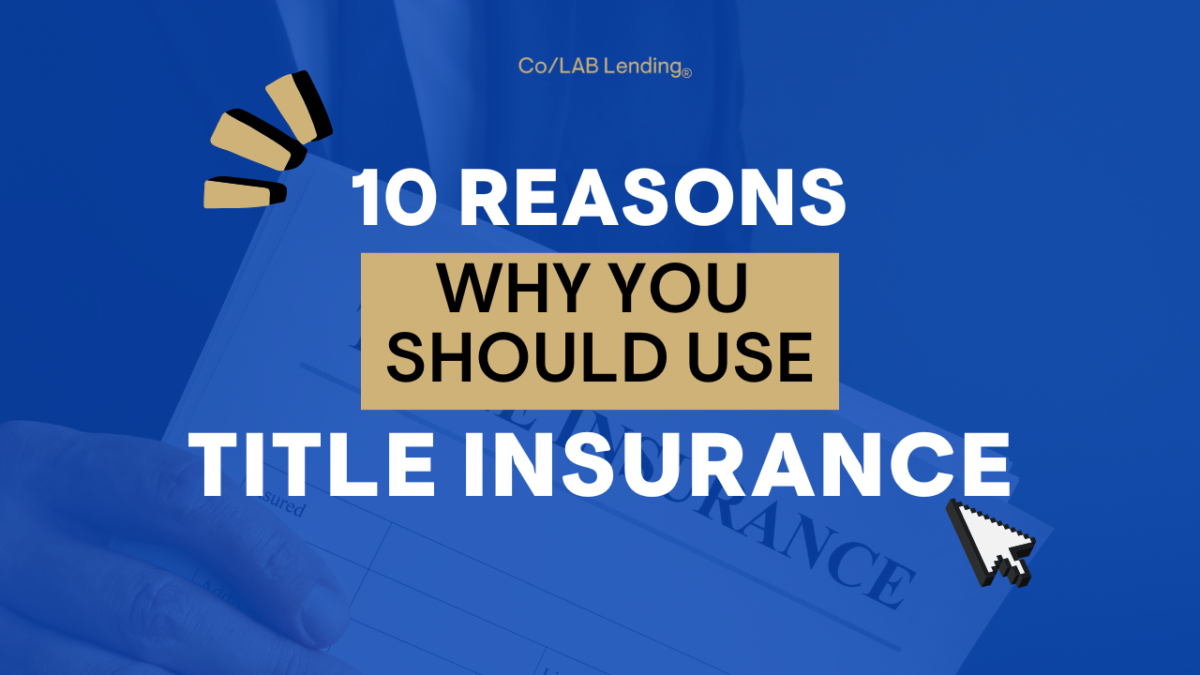Understanding Property Title Insurance: A Comprehensive Guide
Guide to Property Title Insurance
It seems like you need insurance for just about anything nowadays, and that includes very important documents that could be the source of financial drain and plenty of headaches if they contain errors. In this case, we’re talking about property titles. The purpose of property title insurance is straightforward. It’s a document that officially lists the legal owner of a piece of property. Sounds simple right? Well, you might be surprised to know that mistakes—even small ones—on a title can be very costly.
That’s where title insurance comes in. Title insurance is a form of insurance that protects lenders and homebuyers from financial loss sustained from defects in a title to a property. It’s possible that issues aren’t detected during the buying process and can be expensive to fix once they are discovered. Having title insurance protects buyers and lenders from having to shoulder those costs alone.
Don’t think you need title insurance? Here are 10 common errors found in titles to make you reconsider.
1. Understanding Errors in Public Records
No record is truly perfect and public records are no exception. It’s not uncommon for public records to be filed with errors and fixing those mistakes means shelling out money and waiting what may become a long time for the wheels of bureaucracy to finish turning and resolve the issue.
2. Dealing with Unknown Liens
There’s a chance whoever owned the property before you may have not paid a bill (like property taxes) and you may discover a lien has been placed on the property. A lien is a legal right used to claim assets that are typically used as collateral to satisfy a debt. In the case of unpaid property tax, the city government would place a lien on your home until you are able to pay off the debt. Liens can be placed on nearly any type of property, but they are more common with distressed properties such as short sales and foreclosures.
3. Navigating Unknown Easements
An easement gives other people or entities (e.g. government agencies) the right to access part of or your entire property. Examples of easements include giving access to an electric company to maintain powerlines and poles on your property. Another would be a neighbor using a private road on your property to access a public road if there are no other means.
4. Handling Undiscovered Encumbrances”
An encumbrance is a burden placed on a property that can reduce its value. In the realm of real estate, encumbrances typically mean a third party is holding a claim to all or part of your property or regulates the use of your property. Examples include liens (covered above), easements (also above), and covenants that limit the use of your property.
5. Illegal Deeds
During the property buying process, a title search is completed to confirm to you and the lender that there are no other “claims” of ownership or deeds on the property. Sometimes title searches do uncover issues, such as forged deeds and fraudulent title transfers. It’s not a new problem but housing experts are seeing an uptick in cases, especially in areas with large numbers of vacant properties.
6. False Impersonation of a Previous Owner
It wouldn’t be on this list if it didn’t happen. There are cases where properties have been bought from people impersonating an owner, so be vigilant about who you buy from.
7. Undiscovered Will
Like the previous entry, the discovery of a lost will might sound like a plot out of the movies. It’s rare but can occur in cases where a property has been sold by the state on behalf of a person without a will. If a will does turn up, your ownership of the property could be put in jeopardy.
8. Missing Heirs
As you probably guessed, if wills can remain undiscovered then so can heirs. Very rarely, missing heirs or contested will turn up during or after the buying process. Situations like these often are settled in court, meaning you’re about to have an expensive and time-consuming fight on your hands—especially if you’ve already purchased the property.
9. Forgeries
Falsifying documents in the property buying process can have serious repercussions. Forgeries are often part of larger fraud attempts where scammers gather personal information about you and use it to file a transfer of ownership with the county government, effectively stealing your title—and your property—out from under you.
10. Boundary/Survey Disputes
Property lines define the size and boundaries of properties and offer another opportunity for errors to occur. The results of one land survey may be different from another. That means your property lies can shift, which might allow a neighbor or other party to claim ownership of a part of your property.
Now that you’re aware of potential issues you can encounter while buying property, consider protecting yourself with title insurance. It could be the difference between a smooth buying process and a nightmare. It is important to make sure that you avoid these: Five Costly Mistakes Homeowners Make When Buying Insurance
Guide to Property Title Insurance
It seems like you need insurance for just about anything nowadays, and that includes very important documents that could be the source of financial drain and plenty of headaches if they contain errors. In this case, we’re talking about property titles. The purpose of property title insurance is straightforward. It’s a document that officially lists the legal owner of a piece of property. Sounds simple right? Well, you might be surprised to know that mistakes—even small ones—on a title can be very costly.
That’s where title insurance comes in. Title insurance is a form of insurance that protects lenders and homebuyers from financial loss sustained from defects in a title to a property. It’s possible that issues aren’t detected during the buying process and can be expensive to fix once they are discovered. Having title insurance protects buyers and lenders from having to shoulder those costs alone.
Don’t think you need title insurance? Here are 10 common errors found in titles to make you reconsider.
1. Understanding Errors in Public Records
No record is truly perfect and public records are no exception. It’s not uncommon for public records to be filed with errors and fixing those mistakes means shelling out money and waiting what may become a long time for the wheels of bureaucracy to finish turning and resolve the issue.
2. Dealing with Unknown Liens
There’s a chance whoever owned the property before you may have not paid a bill (like property taxes) and you may discover a lien has been placed on the property. A lien is a legal right used to claim assets that are typically used as collateral to satisfy a debt. In the case of unpaid property tax, the city government would place a lien on your home until you are able to pay off the debt. Liens can be placed on nearly any type of property, but they are more common with distressed properties such as short sales and foreclosures.
3. Navigating Unknown Easements
An easement gives other people or entities (e.g. government agencies) the right to access part of or your entire property. Examples of easements include giving access to an electric company to maintain powerlines and poles on your property. Another would be a neighbor using a private road on your property to access a public road if there are no other means.
4. Handling Undiscovered Encumbrances”
An encumbrance is a burden placed on a property that can reduce its value. In the realm of real estate, encumbrances typically mean a third party is holding a claim to all or part of your property or regulates the use of your property. Examples include liens (covered above), easements (also above), and covenants that limit the use of your property.
5. Illegal Deeds
During the property buying process, a title search is completed to confirm to you and the lender that there are no other “claims” of ownership or deeds on the property. Sometimes title searches do uncover issues, such as forged deeds and fraudulent title transfers. It’s not a new problem but housing experts are seeing an uptick in cases, especially in areas with large numbers of vacant properties.
6. False Impersonation of a Previous Owner
It wouldn’t be on this list if it didn’t happen. There are cases where properties have been bought from people impersonating an owner, so be vigilant about who you buy from.
7. Undiscovered Will
Like the previous entry, the discovery of a lost will might sound like a plot out of the movies. It’s rare but can occur in cases where a property has been sold by the state on behalf of a person without a will. If a will does turn up, your ownership of the property could be put in jeopardy.
8. Missing Heirs
As you probably guessed, if wills can remain undiscovered then so can heirs. Very rarely, missing heirs or contested will turn up during or after the buying process. Situations like these often are settled in court, meaning you’re about to have an expensive and time-consuming fight on your hands—especially if you’ve already purchased the property.
9. Forgeries
Falsifying documents in the property buying process can have serious repercussions. Forgeries are often part of larger fraud attempts where scammers gather personal information about you and use it to file a transfer of ownership with the county government, effectively stealing your title—and your property—out from under you.
10. Boundary/Survey Disputes
Property lines define the size and boundaries of properties and offer another opportunity for errors to occur. The results of one land survey may be different from another. That means your property lies can shift, which might allow a neighbor or other party to claim ownership of a part of your property.
Now that you’re aware of potential issues you can encounter while buying property, consider protecting yourself with title insurance. It could be the difference between a smooth buying process and a nightmare. It is important to make sure that you avoid these: Five Costly Mistakes Homeowners Make When Buying Insurance
Mortgage Consultation Today!
Categories
- Credit (4)
- FHA Loans (3)
- Finances (3)
- First Time Home Buyers (6)
- Grab Bag (7)
- Home Technology (1)
- Homebuying Tips (17)
- Inspiration (1)
- Insurance (3)
- Interest Rates (3)
- Loan Process (1)
- Mortgage Financing (14)
- Motivation (1)
- News (1)
- Press Release (8)
- Renovation (2)
- Self Employed (1)
- Tips & tricks (1)
- Uncategorized (134)
- USDA Loans (1)
- VA Loans (2)




